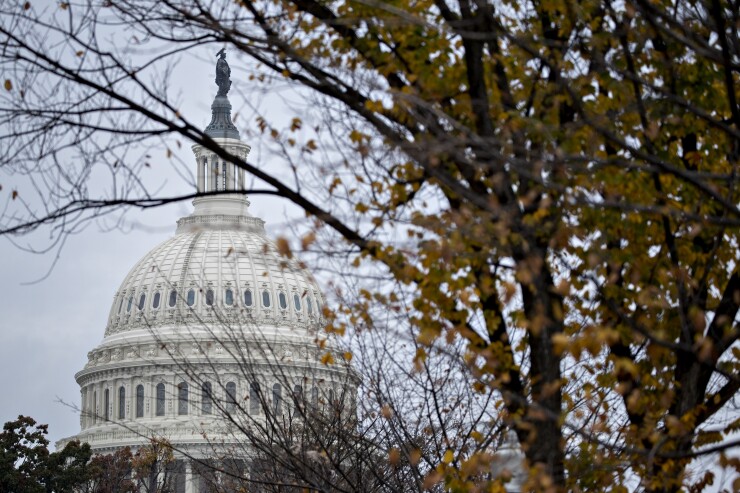House lawmakers took a step that could ease the path for small businesses to sponsor retirement savings plans for employees.
The Secure Act cleared the House Ways and Means Committee on Tuesday, and now heads to the full House for consideration. A similar bill has been introduced in the Senate, and sponsors of the measure are hopeful it could clear both chambers and head to the president’s desk this year.
The bill encompasses a variety of standalone proposals, and if it becomes law, supporters envision a flood of new retirement plans coming into the marketplace. In particular, small businesses would be able to band together in multi-employer plans without some of the restrictions that have hindered adoption of the MEP model.
For instance, employers would no longer be required to pool together with other businesses in similar fields, but instead would be free to associate with a broad range of firms in an open MEP framework. Also, the bill would seek to ensure that if one business ran afoul of the requirements of the MEP, others would be able to continue participating in the program.
“This provision will make it easier for small businesses to offer retirement plans to their employees, and will result in the formation of an estimated 700,000 new retirement accounts,” said Rep. Richard Neal (D-Mass.), chairman of the Ways and Means Committee and one of the bill’s sponsors.

Trade groups representing various segments of the benefits and retirement fields hailed the bill’s advance. Paul Richman of the Insured Retirement Institute called it a “critical step toward creating financial security during retirement.”
“Revamping the rules and regulations to allow for MEPs to meet the needs and concerns of small employers will help to close the retirement coverage gap and improve the retirement outlook for millions of working Americans by expanding workers’ access to retirement plans,” Richman, IRI’s chief government and political affairs officer, said in a statement.
Indeed, more than 50 million American workers don’t have access to a plan through their employer, noted Wisconsin Democrat Ron Kind, one of the bill’s sponsors. And in smaller employers, the gap is particularly pronounced, with some 60% of small business employees lacking access to an employer-sponsored plan.
“That’s what this legislation is meant to correct, in part, is that black hole of retirement savings, especially in the small business world,” Kind said.
The bill also includes language to ease the administrative burden of participating in a MEP, allowing the plan to submit one Form 5500 on behalf of all participating businesses, rather than requiring each firm to submit its own, largely duplicative form.
“I’ve heard directly from employers who would like to offer retirement savings to their employees but struggle to overcome red tape and financial barriers to do so,” said Rep. Judy Chu (D-Calif.).
Other key elements in the bill include a requirement for firms to make long-term, part-time employees eligible for participation in a 401(k) plan. That provision aims at addressing a gender imbalance in workers' ability to save for retirement.
"This affects many workers — especially women — because women are more likely than men to work part-time, so the current rules can be quite harmful to women as they try to prepare for retirement,” said Rep. Stephanie Murphy (D-Fla.)
The Secure Act would also do away with the maximum age limit for contributing to a traditional IRA, and increase the age requirement for taking retirement plan distributions from 70.5 to 72.
The bill, officially called the Setting Every Community Up for Retirement Enhancement Act, cleared the Ways and Means Committee by a unanimous voice vote. Kind said he had received indications from the chairman and ranking member of the Senate Finance Committee that they intend to move promptly on their version of the bill.
Meantime, Neal, the Ways and Means chairman, said that he is already looking ahead to another retirement bill — one that he said will help close the coverage gap, simplify the retirement system, and help savers preserve their nest egg. Neal said he hopes to mark up that bill before the August recess.





